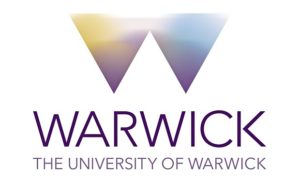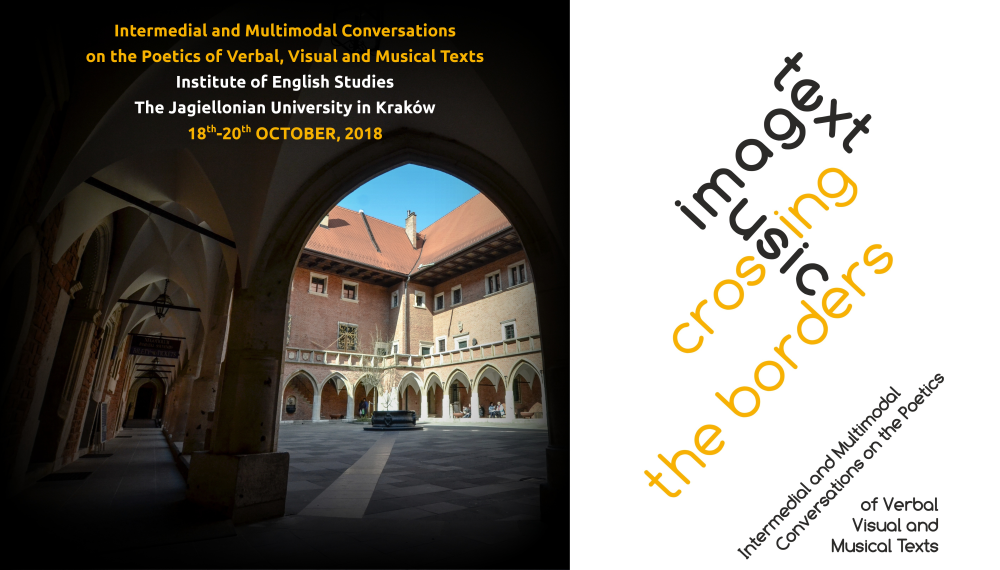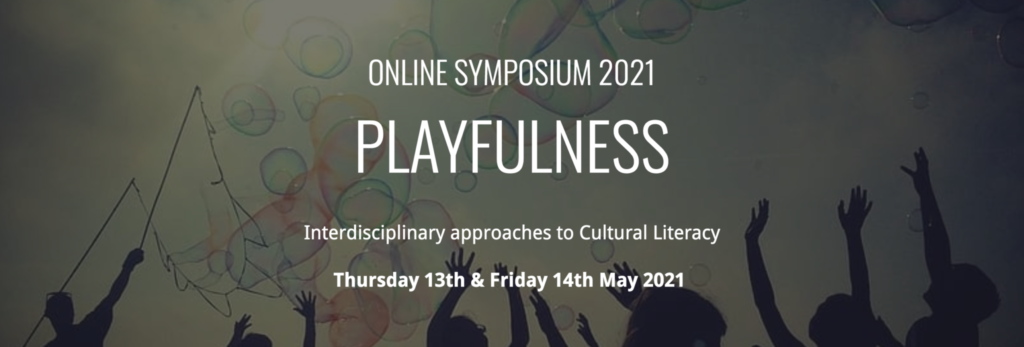
The booklet of abstracts and bios can be viewed here:
Symposium Programme can be viewed here:
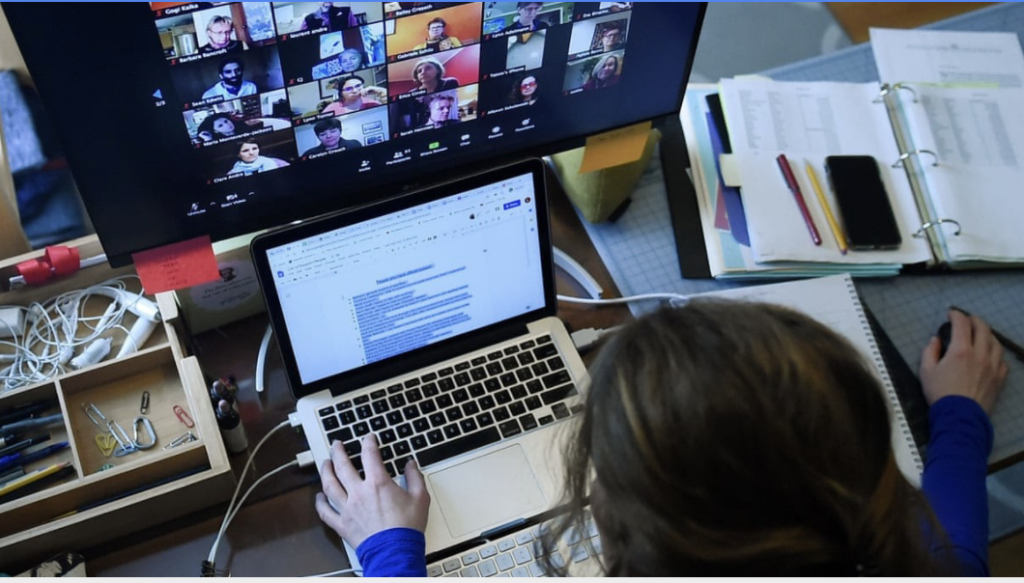
A TWO DAY ONLINE SYMPOSIUM OF ACTIVITIES AND WORKSHOPS
Ask busy children what they’re doing and they’ll say ‘I’m playing’. Ask an adult and they will be playing the piano, the fool, or a video game. While playfulness forms an integral part of cultural expression and communication, its interpretation often depends on cultural expectations and limited interdisciplinary research can be found on the aesthetics of playfulness, or its role in intercultural communication. For D W Winnicott, playfulness takes place in the area between inside (self) and the outside (other/wider cultural experiences) in an intermediate, transitional area. Melanie Klein and Anna Freud both pioneered their own ways of utilizing children’s playfulness within the psychotherapeutic setting as a way of accessing unconscious processes.
Kant’s definition of art as ‘purposeless purposiveness’ sites it at exactly the point where play & seriousness meet. The reification of play occurs when ambiguity, humour & laughter, irony or satire, are deployed in music, literary or visual culture to achieve specific aims (eg. to critique or lampoon extreme or repressive regimes) – for example Molière’s play Le bourgeois gentilhomme, or Buñuel’s film Cet obscur objet du désir), or in postmodern resistance as formulated in Jacques Derrida’s concept of “play” and Jean Baudrillard’s “simulacra”, or to counteract the rigidity of institutions and systems —see for example Pippa Hale’s recent work “Play Rebellion” (2018). The search for meaning in a chaotic world is eschewed, often playfully, and the postmodern medium becomes a parody of this quest. ‘Play’ then also becomes a powerful form of political resistance—of displacing hegemonic narratives not for the purpose of creating something new, but to destroy and reveal the constructed nature of what previously existed.
The act of ‘objectless’, or intransitive playfulness, and its experiential dimension, however, remain largely unexplored. One example of such ‘play’ can be found in Zen Buddhism, as expressed in the arts of the Japanese Edo period and in the visual culture of the Japanese Design Movement of the late 1970s and ‘80s. Another example is the acting method developed by Oleksandr Tokarchuk at his school of creative acting in Kyiv, summed up by the phrase “conducting your self” (written as two separate words). Playfulness, then, becomes part of the artistic personality, when the real world is understood as a theatre stage and its decor.
In a world of increasingly transcultural and transmedial forms of expression, exploring notions of playfulness in their socio-cultural context offers an approach to cultural literacy which can arguably foster intercultural understanding in a manner less readily accessible than through purely experiential means. At the same time, experimenting with the process and aesthetics of playfulness, facilitated by instant communication technologies, which cross-fertilise between ages, cultures and media with remarkable resilience (eg. surrealism), can also offer valuable insights in fostering intercultural literacy. The aim of this conference, therefore, is to invite scholars from a wide range of backgrounds and interests to engage in thoughtful and critical discussion around the multiple manifestations of playfulness and their contributions to cultural literacy.
FEATURING…

Pamela Burnard, music theorist 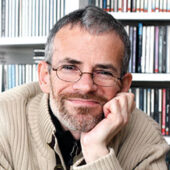
Tim Blackmore, film & media 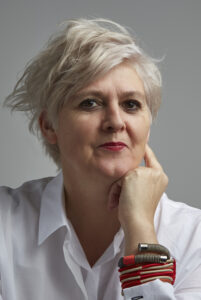
Caroline Bergvall, poet
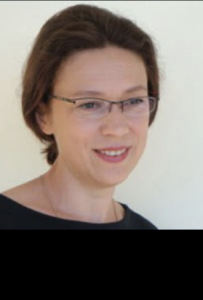
Natalia Tokarchuk, School of Creative Acting 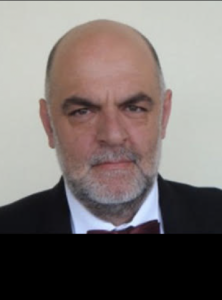
Oleksandr Tokarchuk, School of Creative Acting 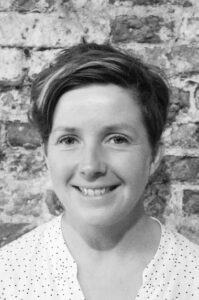
Lucy Cathcart Frödén, Musician & Linguist
| This two-day online Symposium is designed to generate active discussion, focusing on thinking and talking rather than formal presentations, using simple online platforms and apps to foster a virtual experience. If your proposal is accepted, it will be included in a digital ‘book of presentations’ that all participants will be asked to read in advance of the Symposium. The contributions will be grouped together into parallel break-out sessions of 90 minutes during which each presenter will briefly summarise their points in a presentation of max 5 minutes & three slides, and the subsequent discussion will aim to explore the key theme of the panel. |
Prior membership of CLE is required; become a member
SYMPOSIUM FEES
Students (+ ID)/ Unwaged £20
Standard £50
CALL FOR PROPOSALS (NOW CLOSED)
PROPOSALS ON ANY OF THE FOLLOWING – OR ALLIED – TOPICS ARE WELCOME:
- The aesthetics and/or philosophy of playfulness
- Diversity or inclusivity and intersectionality of playfulness
- The role of playfulness in interdisciplinary collaboration or education
- Playfulness and experimental translation
- The role of playfulness in stimulating new ways of thinking in cultural literacy
- Playfulness in and out of the psychoanalytic consulting room
- Playfulness in media, literature, the visual and performing arts
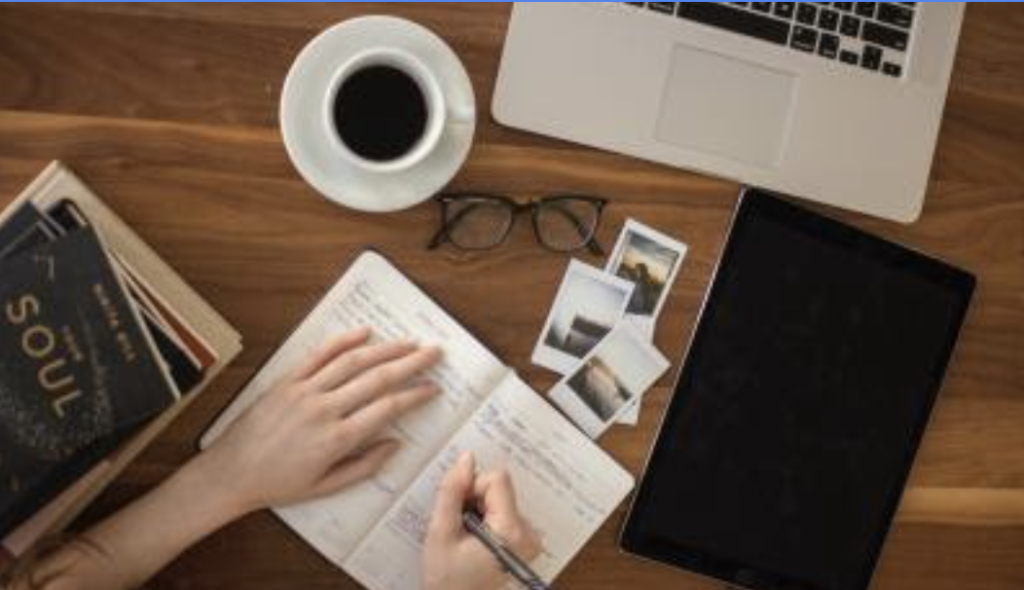
| You are invited to submit a proposal in English for a 5-minute presentation. It should consist of your name, affiliation, email address, title, a 300-word statement on any area of the symposium topic and a mini-biography (max. 300 words).Please submit your abstract and bio by filling in the form using the link provided below by the deadline of noon GMT on Sunday 6 December 2020. Proposals that arrive after this date will not be considered. |
Abstracts:

